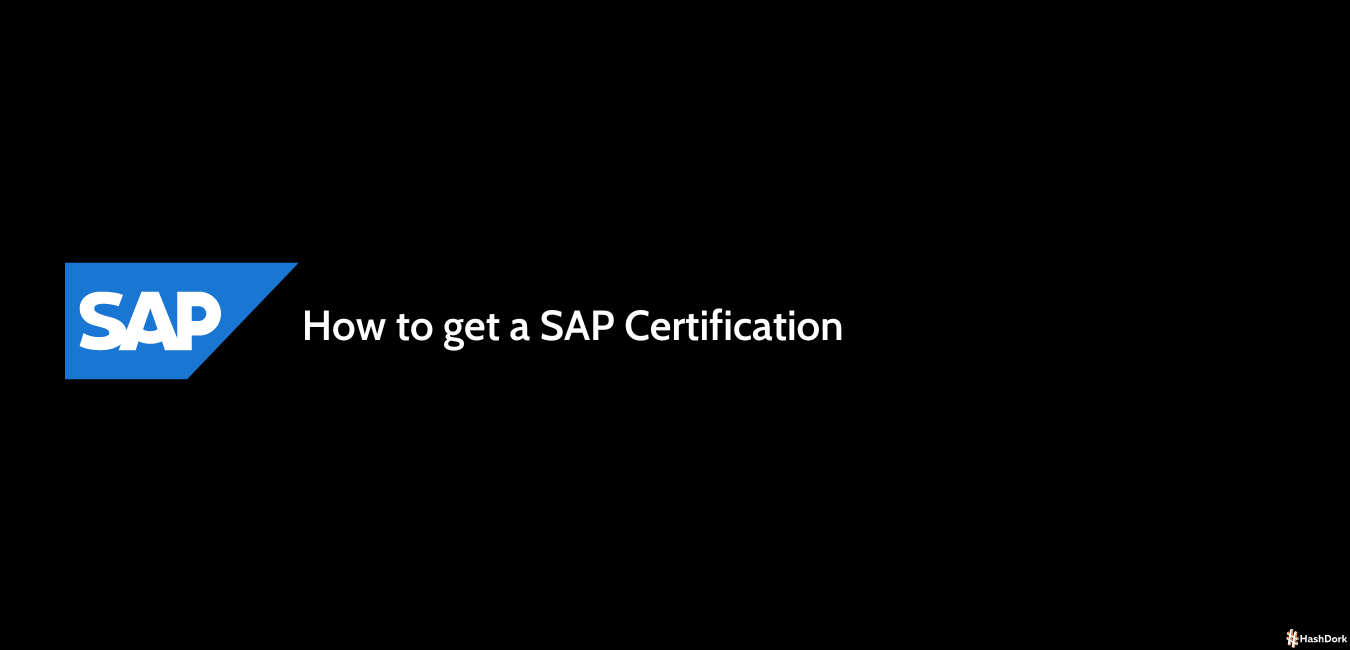Table of Contents[Hide][Show]
In 2025, developers all over the world are racing to use LLM-based tools to make better, more interesting applications.
There has been a significant increase in the demand for AI-powered features, such as real-time translation, content summarization, and code suggestion, which has changed how teams prioritize functionality.
AI-powered services can now be added to teams’ projects, so they don’t have to deal with system issues. This lets them focus on coming up with creative solutions.
This change makes it easier for new businesses and independent programmers to compete based on creative ideas rather than financial resources. What big idea will you make happen when AI is just a building block?
In this post, we will be looking the best LLM API providers in the market so that you can integrate LLM capabilities into your application.
1. OpenAI
OpenAI’s GPT family, which includes models like OpenAI o3 and OpenAI o4-mini, runs ChatGPT and gives users interfaces for chat, completions, and embeddings that are ready to use.
These APIs allow teams to perform tasks such as semantic search, code completion, and text generation without the need to build or maintain a large-scale AI infrastructure.

OpenAI’s API ensures superior availability for production applications, with an average reliability of 99.82% for the entire service.
Developers get a safe and solid base for testing and deploying AI with built-in moderation endpoints, access controls, and regular model changes.
Why Developers Choose the OpenAI API?
- Support for many models: You can use top models like the OpenAI o3 and OpenAI o4-mini, GPT-4, and they will all work the same way in all situations.
- Simple integration: The setup time is reduced by a straightforward REST interface that includes official SDKs and code examples in Python, Node.js, and cURL.
- A rich feature set: Designed support for text completions, chat, embeddings, function calling, structured outputs, and fine-tuning unlocks many processes.
- Automatic scaling: Strong rate limits and tracking of usage handle millions of calls without the need for manual infrastructure management.
- Strong community and docs: Active developer forums, manuals, and tutorials simplify troubleshooting and best practices.
Pricing
OpenAI o3 costs $10 for every 1 million input tokens (cached $2.50) and $40 for every 1 million output tokens. OpenAI o4-mini costs $1.10 for every 1 million input tokens (cached $0.275) and $4.40 for every 1 million output tokens.

2. Together AI
Together AI provides support for over 200 open-source models, ranging from chat and code to vision and audio, using a single application programming interface (API) that is compatible with OpenAI.
This eliminates the need to manage various endpoints. Its system takes care of automatic tasks like token caching, load sharing, and quantization, so you don’t have to tune it by hand.

Real-time features like live chat, code ideas, and more can be powered by apps with response times of less than 100 ms.
You can switch endpoints with the OpenAI API without having to make many changes to your code, and your current processes will still work.
Why Developers Choose Together AI?
- Broad model support: Use a single API to access over 200 open-source LLMs for messaging, vision, code, and other applications.
- In-built optimization: Performance is optimized through automated quantization and token caching.
- Inference with low latency: Response times of less than 100 milliseconds ensure real-time user experiences that are seamless.
- Cost management: Teams can balance performance and cost across various model sizes with pay-per-token pricing.
- OpenAI compatibility: You can use the OpenAI client packages and tools you already have without having to write new code.
Pricing
Pricing begins at $0.60 per 1 M tokens for models up to 56 B parameters and grows up to $2.40 per 1 M token for mixture-of-experts models exceeding 176 B parameters.

3. OpenRouter
OpenRouter is an inference marketplace that offers a unified, OpenAI-compatible API that enables users to access more than 300 models from all of the leading providers.
This API supports easy integration of models from OpenAI, Anthropic, Google, Bedrock, and numerous other providers, rendering it a versatile LLM platform suitable for any application.

It ensures high availability for production workloads by autonomously routing requests around provider outages and pooling uptime across multiple backends.
Teams can decide which providers have access to their data with fine-grained data controls, and built-in analytics give a centralized dashboard for tracking expenses and usage.
Why Developers Choose OpenRouter?
- 300+ models, one API: Easily access the most prominent LLMs, including messaging and vision, without the need to manage multiple endpoints.
- Automatic failover & load balancing: Requests are sent right away to healthy providers if one goes down with automatic backup and load sharing.
- Low latency: Edge-based routing only adds about 30 milliseconds to the time it takes to make a prediction.
- Integration of billing and analytics: Consolidate costs and consumption across all models in a single location.
- Custom data policies: To protect sensitive information, specify which prompts should be sent to which providers.
Pricing
Each provider’s pay-as-you-go token rates are passed through by OpenRouter without any overhead. The prompt and completion prices are model-specific and are displayed per million tokens on the models page. The pricing for Gemini 2.5 Preview commences at $1.25 per million input tokens and $10 per million output tokens.

4. Fireworks AI
The Fireworks AI platform is a serverless inference platform that allows developers to access language, image, and embedding models through a single REST or Python client, without the need to manage infrastructure.
It can be scaled up or down quickly on demand, and teams can start using prototypes and production features without having to make any big promises up front.

The platform offers advanced modes, such as JSON mode and grammar mode, which ensure 100 percent schema adherence.
Additionally, it includes FireFunction, which enables the efficient execution of functions at a rate of up to 180 tokens per second.
Why Developers Choose Fireworks AI?
- Instant setup: Start calling models in seconds with minimal configuration.
- Flexible billing: Private deployments are billed per GPU-hour, while serverless inference is billed per token.
- High throughput: FireFunction achieves 180 tokens/sec for function calls, while serverless models can reach up to 300 tokens/sec.
- Structured output: The use of grammar modes and JSON ensures that the responses are valid and machine-readable.
- API compatibility: Use the same OpenAI-style endpoints and SDKs without the need for code rewrites.
- Free trial credits: Look over the whole feature set before making a purchase.
Pricing
The cost page for Fireworks AI has all the information you need. For serverless text models, DeepSeek V3 is $0.90 for 1/M token. You can check more on its pricing page.

5. Anthropic
Claude is a collection of AI models that can be accessed through Anthropic’s API. These models are capable of supporting high-throughput function calling, embeddings, completions, and conversation.
Its safety-first design encompasses a comprehensive Trust Center that publishes transparency reports and security practices, as well as continuous model updates and moderation endpoints.

The most recent Claude 3.7 Sonnet presents hybrid thinking—symbolic and statistical methods combined with more consistent results in coding and analytics chores.
Through its Admin API and Trust & Safety tools, Anthropic gives corporate customers SSO, SOC 2 compliance, and specialized guardrails.
Why Developers Choose Anthropic?
- Safety and Compliance: HIPAA choices, built-in guardrails, cryptographic hash of identities, and SOC 2 support help to lower risk during implementation.
- Hybrid reasoning performance: Claude 3.7 Sonnet is the leader in coding and reasoning benchmarks, resulting in a significant decrease in developer troubleshooting time.
- Extensive context windows: Models are capable of supporting up to 200k tokens for thorough, multi-step procedures, such as document Q&A and long-form analysis.
- Structured output modes: JSON and grammar modes ensure that responses obey valid schemas, thereby facilitating integration with downstream systems.
- Multiple cloud availability: Anthropic’s API, AWS Bedrock, and Google Cloud Vertex AI can all be used to access the service, which allows for flexible rollout.
- Developer ecosystem: Full documentation, SDKs, and an active community help shorten the time it takes to get the first call.
Pricing
Anthropic prices Haiku at $0.80 input / $4 output every 1 M tokens, Sonnet at $3 / $15, and Opus at $15 / $75 with quick caching and tiered credits to maximize expenses.

6. Mistral AI
Mistral AI is a research lab that specializes in the development of open-source language models. They also provide La Plateforme, a unified API that enables teams to include conversation, completion, embedding, and vision endpoints with minimal code.
The platform offers a free tier for testing and competitive pricing revisions across its model family, which includes the all-new enterprise-grade Mistral Small 3.1.

A RESTful interface lets you do things like live chat and embeddings, and the Batch API can handle a lot of requests for half the price of a regular call.
The enterprise features of fine-tuning and private deployments, as well as the built-in rate limits and usage categories, ensure the reliable scaling of production workloads.
Why Developers Choose Mistral AI?
- Economical and open-source: Open-source models and a free API tier help to reduce the challenges for development and experimentation.
- Easy to use: Developers can start calling chat, embedded, or vision services through La Plateforme in minutes with just a few lines of code.
- Multiple inference modes: Asynchronous chat, embeddings, and a Batch API allow for variable pricing, and bulk tasks can save up to 50% on costs.
- Modern models: Mistral Small, Mixtral MoE versions, Mistral 7B, and Mistral Medium balance cost and performance across usage scenarios.
- Scalable production features: Rate limitations, tiered use, fine-tuning assistance, and private or on-prem installations satisfy business dependability and compliance demands.
Pricing
Pricing ranges from $0.25 per 1 M tokens for Mistral 7B to $8.10 per 1 M tokens, with Mixtral models at $0.70–$2.00 input and $0.70–$6.00 output per 1 M token, and Mistral Small at $1.00/$3.00 per 1 M token.

7. Stability AI
Stability AI initiated the generative AI surge with Stable Diffusion, which released open-source models for the generation of audio, video, 3D, and image under permissive licenses.
Its Developer Platform has a unified REST API (v2beta) with endpoints for creating, changing, and upscale tasks. It also has sandbox settings and limits the number of requests to 150 every 10 seconds.

The API routes calls through partners in the cloud and also lets you run your own licenses for on-premises operations and compliance needs.
Why Developers Choose Stability AI?
- Open-source commitment: Core models, such as Stable Diffusion 3.5, are available for both commercial and non-commercial use under permissive licenses.
- Multiple APIs: One interface includes tools for writing, text-to-image, image-to-image, video diffusion, and more, which makes collaboration easier.
- Self-hosting and cloud flexibility: Teams have the option of utilizing on-prem hosting or collaborating with providers such as AWS, Snowflake, and GCP to satisfy data-sovereignty requirements.
- High performance: Real-time applications benefit from reduced latency and quicker throughput in the preview releases of Stable Diffusion 3 APIs.
- Responsible AI: Stability AI works with experts and puts out openness reports to make sure that building and using models is safe.
Pricing
For API requests, Stability AI costs $1 per 100 credits—one credit equals $0.01—with extra credits purchased on demand from the billing panel.

8. Gemini API
The Gemini API enables you to access Google’s premier AI models through the Google AI for Developers portal, utilizing straightforward SDKs in Python, JavaScript, Go, or Apps Script.
It can create text from images, videos, or voice sources for smooth multimodal processes and allows chat, completions, and embeddings.

Developed on Vertex AI, context windows of up to one million tokens are provided, making them suitable for book-length analyses or multi-document Q&A.
This feature is achieved without the need to manage GPU clusters manually. You can also use Google Cloud’s tracking, fine-grained rate limits, and billing tiers that change while your usage does.
Why Developers Choose Gemini?
- Multimodal support: Use a single endpoint to manage text, image, audio, and video prompts.
- Huge context windows: For in-depth research without the need for manual context separation, up to one million tokens (1 M) are available.
- Seamless SDKs and documentation: A plain API reference and official libraries accelerate the first-call-to-deployment process.
- Flexible billing: The combination of a free tier and pay-as-you-go pricing guarantees that the costs of production and prototypes are predictable.
- Enterprise-grade security: Vertex AI leverages Google’s compliance certifications, customer-managed encryption (CMEK), and integrated IAM controls.
Pricing
It costs $0.15 for every 1 million input tokens and $0.60 for every 1 million output tokens for Flash models. For short contexts, it costs $1.25 for every 1 million tokens, and for long contexts, it costs $2.50 for every 1 million tokens.

9. LLM API
LLM API provides developers with a uniform, OpenAI-compatible interface that allows them to pay as they go for access to many open-source language models.
These models include DeepSeek R1, Llama 3.2 Vision, Llama 3.3, Scout, Llama 4 Maverick, and Gemma 2 and 3.
On day one, it was the first platform to use function calling for Llama 2; its SDKs in Python and JavaScript help integrate bespoke tool calls into chat assistants.

Teams are able to build more quickly by using features such as a built-in messaging interface, full security controls, and adjustable rate limits, which enable them to avoid boilerplate.
Trusted by LangChain, Stack AI, LlamaIndex, and Namecheap, LLM API fits perfectly for chat, coding, and vision projects on current pipelines.
Why Developers Choose LLM API?
- Models support: Several models can be used with one output, which supports Llama 4, Llama 3.3, Llama 3.2 Vision, DeepSeek R1, Gemma 2 and 3, and more.
- Function calling: To create tool-enabled assistants, directly call external functions from model outputs.
- OpenAI compatibility: Use standard OpenAI clients and libraries without the need to rewrite code.
- Pay-as-you-go billing: There are no upfront costs; token pricing varies according to model size to help control budgets.
- Security and compliance: Provides complete data isolation, encryption, and access controls.
- SDKs fit for developers: Official Python and JavaScript packages manage sessions and errors for you.
Pricing
LLM API costs $0.0004 per 1,000 tokens for models with up to 8 B parameters, $0.0016 per 1,000 tokens for models with 8 B to 30 B, and $0.0028 per 1,000 tokens for models with more than 30 B.

10. Deepinfra
Deep Infra provides a simple API to rapidly produce production-ready endpoints from popular open-source language, embedding, and vision models.
It uses serverless GPUs in several cloud regions to make sure latency is less than 100 ms and automatically grows based on demand.

There are no minimum agreements or long-term contracts. You only pay for the input or output tokens or the time it takes to run an inference, based on the model.
Teams can go from prototype to production without constructing ML Ops pipelines with fine-tuning, private deployments, and use tiers.
Why Developers Choose Deepinfra?
- Serverless GPU infrastructure: Zero ML Ops overhead, autoscaling, and deployments in multiple regions keep delay low and operations easy.
- Detailed model catalog: You can use one API route to get to hundreds of the best open-source LLMs, such as Meta Llama, DeepSeek R1, Phi-4, and Mixtral.
- Flexible billing: Allows teams to match spending to usage with token-based and inference-time pricing that doesn’t require any fixed costs.
- Enterprise controls: Private/custom model hosting, data isolation, usage categories, and rate limits all satisfy production reliability requirements.
- Compliance and security: Certifications in FedRAMP, GDPR, ISO 27001, HIPAA, and SOC 2 improve controlled workloads.
Pricing
The prices for Llama-3.1-405 B-Instruct start at $0.9 / 1M input tokens. You can check their pricing page for more detailed pricing.

Conclusion
In 2025, developers evaluate a wide range of LLM API platforms, from well-known industry players to small startups, to support services like code help, chat, summarization, and translation across apps.
A lot of these services offer a single endpoint that works with OpenAI, which means you don’t have to handle complicated AI technology.
Still the most developed choice, OpenAI provides battle-tested endpoints, complete SDKs, and a worldwide SLA-backed service.
Rising platforms such as Together AI, OpenRouter, and Fireworks AI provide access to open-source model markets, automated optimization, and sub-100 ms inference to strike cost- and performance-wise.
Scale-oriented APIs from Mistral, Gemini, and Stability AI, as well as safety-focused providers like Anthropic, provide guardrails, multimodal support, and extensive context windows for complex workflows.





Leave a Reply